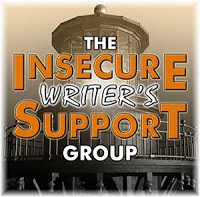 |
Sometimes I feel
so small in revision.
|
If you think about it, all
stories begin with relevant backstory. For just as real people deal with the
present based on their past, so too must our characters deal with the story
problems based on their relevant past experiences. The key word here is
“relevant” past experiences. Jennie Nash and Lisa Cron in
my Story Genius course asked:
What was the pivotal moment in
your character’s past that changed her outlook on life? This will be the “origin
scene” that sets the character up for interpreting the present story problems.
Even in memoir.
In my memoir about attending
college as a mother of five, I felt highly inadequate for college—and amazingly
so at the Ivy League level. Attending college is not something rational people
do on the spur of the moment. Not even when the prospective college student is
a mom challenged by an all-knowing educated person who determines that her
child shouldn’t attend college because she’s not good enough.
In my mind, people who attend
college spend years preparing for it. At the Ivy League level, students spend
their entire lives in preparation for it. No, college isn’t something to take
lightly. After all, I could fail out, proving that educated person and extended
family members that I am, in fact, unable to succeed and therefore my child
might be as well.
It all came back to me. The
origin scene for my college memoir, that is.
It was early spring in 1973, and
I was perusing the high school curriculum booklet given out by the counselors,
dreaming of going away to college. At that time, I thought everyone who
attended college went away to be able to concentrate solely on their college
education. At least that’s what they did in movies and on television.
Boy was I naïve! We never heard
of community college or college loans. My family had no money for college.
I sat at the kitchen table, selecting
college prep courses from the curriculum booklet for high school. I was the
second child of four in my blue-collar family, the first who wanted to attend
college. Then my father, a machinist by trade, the realist in our family by
necessity, took note of what I was doing.
“Vic,” he said. “What makes you
so sure you can handle college?”
My hand went numb, the course
selection form blurred on the kitchen table. Why couldn’t he forget about my
earlier struggles in school? I tried to.
“Dad,” I choked out. “I’m on the
honor roll now.”
“It takes more than that to succeed
in college, Vic.”
The scene continues as my father
hammers into my consciousness that our family goes to work after high school.
As someone who struggled earlier in her education, I should accept that I
wasn’t college material and move on in life.
Finally, Dad’s realism became my
realism. I wasn’t cut out for college. I was inadequate to those attempting higher
education. It ate away at my confidence to succeed in life. I needed to settle,
not strive. This was my present, my future, my life.
This origin scene works in
conjunction with a post on the ticking clock of a story.
It wasn’t until I was a mother
of five with a special needs daughter that I finally realized if you don’t take
any risks in life, you have already failed.
I think the choosing of my high
school curriculum scene was the first “relevant” past experience, the origin
scene, that formed my belief of not being good enough for college. I also feel
it shows the effect a significant adult can have on a child. It forced me to be
sure not to do the same to my children.
Please offer any comments or
questions regarding this scene or your own college preparation, for they truly
help me to define the moment and improve the writing. Thanks again for stopping
by Adventures in Writing and leaving a note. It’s greatly appreciated.
